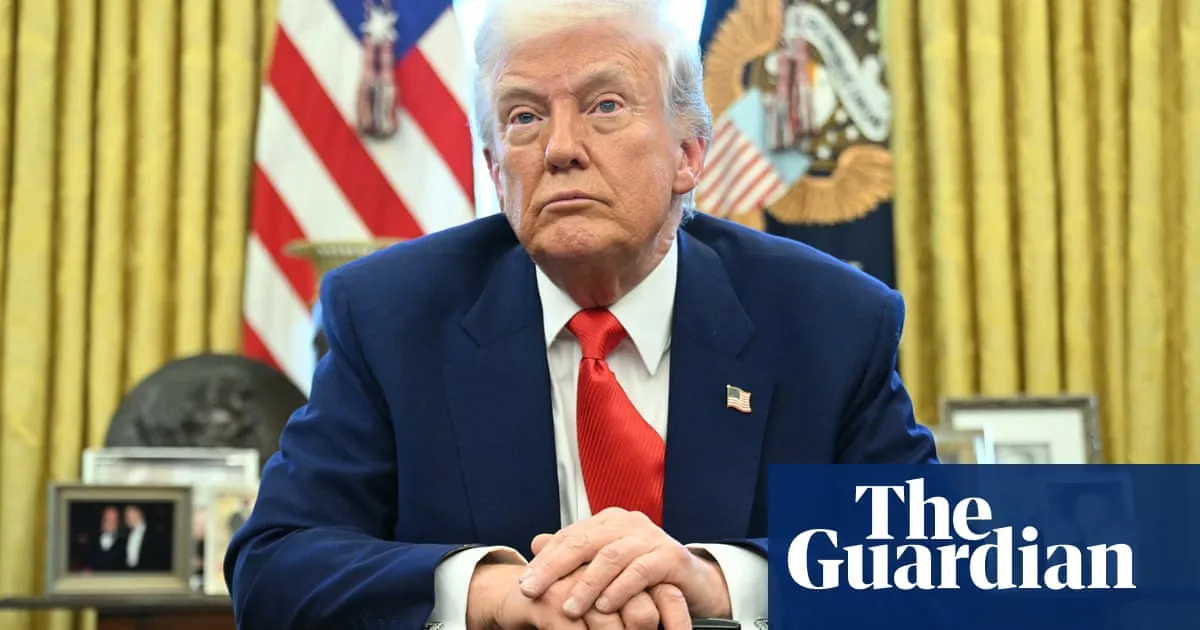
In a surprising turn of events, President Donald Trump announced on social media that he would pause higher trade tariffs for most countries, excluding China, for 90 days. This announcement came after a morning filled with bravado, where Trump insisted, “My policies will never change,” and urged his followers to “BE COOL. Everything is going to work out well.” However, just hours later, the mounting economic and political pressure led him to a significant retreat, undermining his image as a strongman leader.
Despite the White House's attempts to spin this retreat as a strategic maneuver by a master dealmaker, the damage was already evident. Trump's reversal has harmed America’s reputation as a reliable ally and an honest broker in international affairs. Furthermore, it has shaken the US dollar and the financial system, both of which are crucial to global economic stability. Analysts, including Larry Jacobs from the University of Minnesota, have noted that Trump's presidency may be in jeopardy due to these extreme measures and the unusual backlash from Republicans.
Over the past two weeks, financial markets have experienced unprecedented volatility, reminiscent of the tumultuous period during the coronavirus pandemic. Unlike previous crises, this turmoil stems not from a global health crisis but from the unpredictable whims of one man. Trump's announcement of sweeping "reciprocal" tariffs on numerous countries, which he termed a “declaration of economic independence,” has sparked significant concern in both domestic and international markets.
The tariffs, calculated based on each country's trade deficit with the US, have been met with widespread criticism for their inaccuracies. For instance, the tariffs were absurdly applied to territories like Heard Island and McDonald Islands, which are uninhabited. Despite these miscalculations, Trump maintains that these tariffs are essential for revitalizing US manufacturing and addressing trade imbalances. However, many economists are skeptical, arguing that Trump's vision of restoring America's manufacturing might is unrealistic, given that manufacturing employment currently comprises only 8% of the workforce.
The repercussions of Trump's tariff policies have been swift and severe, leading to instability in financial markets and prompting retaliatory measures from China. Former Treasury Secretary Larry Summers described this situation as "the biggest self-inflicted wound we've put on our economy in history." Many corporate leaders who once supported Trump have expressed regret, particularly as tech giants like Apple faced stock declines and potential price hikes on consumer products.
As pressure mounted from constituents and business leaders, even staunch Trump supporters began to voice concerns. Senator Ted Cruz warned that tariffs are effectively a tax on consumers, marking a significant departure from the party's previously unquestioning support of Trump. This growing discontent could signal a potential shift in Republican attitudes towards the administration, especially as fears of an impending recession loom large.
Ultimately, Trump's decision to pause the tariffs reflects the pressure he faced from various fronts, including business leaders and the public. Democratic strategist Antjuan Seawright remarked that Trump's history of yielding under pressure further underscores his vulnerabilities as a leader. While White House aides claimed victory, Trump himself acknowledged the market turmoil and the unease it created among investors.
Despite the temporary pause in tariffs, a blanket duty of 10% on most US imports remains in place, raising questions about the effectiveness of future negotiations. The chaotic nature of Trump's decision-making could further complicate trade relations, undermining confidence in the US and the reliability of the dollar. Additionally, the escalating trade war with China threatens to inflict pain on American consumers through rising prices on essential goods.
As the situation continues to evolve, the implications of Trump's trade policies will be closely monitored by economists, political analysts, and business leaders alike. The coming months will be crucial in determining the future of US trade relations and the impact of Trump's administration on the global economy.